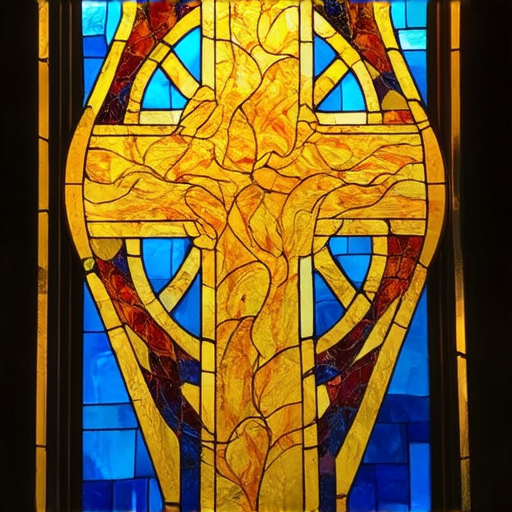Delving into the intricacies of Christian doctrine requires a comprehensive understanding of its core principles and fundamental tenets. At its essence, Christian doctrine encompasses the collective body of teachings, traditions, and interpretations that form the foundation of Christian faith. From the concept of biblical salvation to the doctrine of the Trinity, Christian doctrine plays a pivotal role in shaping the spiritual landscape of millions worldwide.
As Christians navigate their faith, they often find themselves grappling with complex theological concepts and nuanced interpretations. In response, many turn to seminal works on Christian doctrine, seeking guidance and insight into the mysteries of their faith. Whether through academic study or devotional reading, exploring Christian doctrine offers a profound opportunity for spiritual growth and self-discovery.
Throughout history, Christian doctrine has evolved and adapted, reflecting the dynamic interplay between tradition, scripture, and cultural context. As the Christian community continues to grapple with the challenges of the modern world, a deeper understanding of its doctrine remains essential for navigating the complexities of contemporary life.
By examining the rich tapestry of Christian doctrine, individuals can gain a deeper appreciation for the depth and richness of their faith. This comprehensive exploration will delve into the heart of Christian doctrine, uncovering its underlying principles and shedding light on its enduring significance.

The Christian Doctrine
The Christian doctrine encompasses the fundamental teachings of Christianity, which are rooted in the Bible. These teachings revolve around the nature of God, humanity, salvation, and the purpose of existence. Understanding the Christian doctrine is essential for Christians, as it provides a framework for living a virtuous life, understanding the world, and navigating spiritual challenges.
Key Components of the Christian Doctrine
- The Trinity: The Christian doctrine affirms the existence of one God in three persons: Father, Son, and Holy Spirit. This concept is central to Christian theology and is based on biblical passages such as Matthew 28:19 and 2 Corinthians 13:14 (NIV).
- Salvation through Jesus Christ: The Christian doctrine teaches that salvation comes through faith in Jesus Christ, who died on the cross for the sins of humanity and was resurrected on the third day. This event is seen as the means of redemption and forgiveness of sins (John 3:16, Romans 5:8).
- The Nature of Humanity: According to the Christian doctrine, humanity is created in the image of God (Genesis 1:27) and consists of body and spirit. Humans have inherent sinfulness due to Adam’s disobedience in the Garden of Eden (Romans 3:23), but through faith in Jesus Christ, they can receive forgiveness and restoration (Ephesians 2:8-9).
- The Role of the Holy Spirit: The Christian doctrine emphasizes the importance of the Holy Spirit in the lives of believers. The Spirit is seen as the agent of regeneration, conviction, and empowerment for witness and service (John 16:7-11, Acts 2:38).
Sources of Authority
The Christian doctrine is grounded in the authority of Scripture, which includes the Old and New Testaments. The Bible is considered the inspired Word of God, containing the revelation of His character, plan of salvation, and commands for living (2 Timothy 3:16-17). Additionally, the doctrine is informed by the writings of early Church Fathers, such as Augustine and Origen, as well as the ecumenical creeds and confessions of the Christian tradition.
Implications for Christian Living
Understanding the Christian doctrine has significant implications for Christian living. It provides a framework for understanding the world, interpreting scripture, and making decisions about faith and practice. By embracing the Christian doctrine, individuals can experience personal transformation, deepen their relationship with God, and live a life of obedience to His will (John 14:15, Philippians 2:12-13).
The Core Doctrines and Beliefs of Christianity
Christianity is one of the world’s largest and most influential religions, encompassing a diverse array of denominations and interpretations. At its core, Christianity revolves around several fundamental doctrines and beliefs that shape the faith and guide its followers. Here are five key doctrines and beliefs that underpin Christianity:
1. The Trinity
One of the most distinctive aspects of Christianity is its doctrine of the Trinity, which posits that God exists as three distinct persons – Father, Son, and Holy Spirit – yet remains a single entity. This concept is rooted in the Bible, particularly in the New Testament accounts of Jesus Christ’s life and teachings (Matthew 28:19, 2 Corinthians 13:14).
According to theologian John Calvin, “The Trinity is the very foundation of the Christian faith” (Institutes of the Christian Religion, Book I, Chapter 1). The Catechism of the Catholic Church explains the Trinity as “the mystery of God’s existence as a communion of three persons in one essence” (CCC, 234).
2. Original Sin and Salvation through Jesus Christ
Christians believe that humanity fell into sin due to Adam and Eve’s disobedience in the Garden of Eden (Genesis 3). As a result, all humans are born with original sin, which separates them from God. However, through the sacrifice of Jesus Christ on the cross, Christians believe they can attain salvation and reconciliation with God (Romans 6:23, 1 Corinthians 15:3-4).
The Protestant Reformation emphasized the importance of justification by faith alone, arguing that salvation comes solely through faith in Jesus Christ (Martin Luther, “The Bondage of the Will“). Catholic theologian Thomas Aquinas wrote, “Salvation is achieved through the merits of Christ, who died for our sins and rose again for our resurrection” (Summa Theologica, Part III, Question 49).
3. The Authority of Scripture
Christians believe that the Bible is the inspired word of God, containing the revelation of His character, plan, and redemption. The authority of Scripture is based on the testimony of the apostles and early church leaders, who recognized the divine origin of the writings (2 Timothy 3:16-17, Hebrews 1:1-2).
The Westminster Confession of Faith states, “The holy Scriptures are the whole and perfect revelation of God to man, and therefore the only ground of our faith, hope, and obedience” (Chapter 1, Section 1). The Catholic Catechism emphasizes the importance of Scripture, saying, “The sacred books are the Word of God written down in human language” (CCC, 106).
4. The Resurrection of Jesus Christ
Christians affirm that Jesus Christ was crucified, buried, and resurrected on the third day, demonstrating His power over death and sin (1 Corinthians 15:3-4, Acts 2:24). This event serves as the cornerstone of the Christian faith, offering hope for eternal life and redemption (Romans 10:9-10).
The Nicene Creed affirms, “Jesus Christ, the Son of God, was conceived by the Holy Spirit, born of the Virgin Mary, suffered under Pontius Pilate, was crucified, died, and was buried” (Article II). The Eastern Orthodox Church teaches, “The Resurrection of Christ is the greatest miracle of all time, demonstrating His power over death and sin” (The Philokalia, Volume 1, p. 123).
5. The Second Coming of Jesus Christ
Christians anticipate the return of Jesus Christ to earth, marking the end of this age and the beginning of eternity (Revelation 20:11-15, 1 Thessalonians 4:13-18). This event will bring about a final judgment, separating the righteous from the wicked, and ushering in a new heaven and a new earth (Isaiah 65:17, Revelation 21:1-4).
The Baptist Confession of Faith states, “The second coming of Christ will be a glorious event, when He will come to judge the living and the dead” (Article IV). The Lutheran Catechism explains, “The second coming of Christ is a future event, when He will come to judge all people according to their works” (Small Catechism, Question 71).
The 10 Major Bible Doctrines
Understanding the fundamental teachings of the Bible is essential for deepening one’s faith and spiritual growth. Here are the 10 major Bible doctrines that form the foundation of Christian theology:
1. The Trinity
The concept of one God in three persons – Father, Son, and Holy Spirit – is a central doctrine in Christianity. This doctrine is based on biblical passages such as Matthew 28:19, 2 Corinthians 13:14, and John 15:26 (Bible Gateway). The Trinity is a complex and multifaceted doctrine that has been debated and explored by theologians and scholars for centuries.
2. Salvation through Faith
The Bible teaches that salvation comes through faith in Jesus Christ, not through good works or human efforts. Ephesians 2:8-9 states, “For it is by grace you have been saved, through faith—and this is not from yourselves, it is the gift of God—not by works, so that no one can boast” (Bible Gateway). This doctrine emphasizes the importance of personal faith and trust in Jesus Christ as the means of salvation.
3. The Authority of Scripture
Christians believe that the Bible is the inspired word of God, and its authority should not be questioned. 2 Timothy 3:16-17 states, “All Scripture is God-breathed and is useful for teaching, rebuking, correcting and training in righteousness, so that the servant of God may be thoroughly equipped for every good work” (Bible Gateway). This doctrine underscores the importance of scripture as the ultimate source of guidance and wisdom for Christians.
4. The Deity of Christ
The Bible affirms the divinity of Jesus Christ, who is both fully human and fully divine. Philippians 2:6-7 states, “Who, being in the form of God, did not consider equality with God something to be used to his own advantage; rather he emptied himself by taking the form of a slave and came in human likeness” (Bible Gateway). This doctrine highlights the unique nature of Jesus Christ as the Son of God and Savior of humanity.
5. The Resurrection of Jesus
The resurrection of Jesus Christ is a fundamental doctrine in Christianity, demonstrating His power over death and sin. 1 Corinthians 15:3-4 states, “For what I received I passed on to you as of first importance: that Christ died for our sins according to the Scriptures, that he was buried, that he was raised on the third day according to the Scriptures” (Bible Gateway). This doctrine provides hope and assurance for Christians regarding the ultimate triumph of God over evil and death.
6. The Importance of Water Baptism
Water baptism is a symbol of the believer’s death to sin and new life in Christ. Acts 2:38 states, “Save yourselves from this evil generation!” (Bible Gateway). While water baptism is not required for salvation, it serves as a visible expression of a believer’s commitment to follow Jesus Christ.
7. The Gift of the Holy Spirit
The Holy Spirit is given to believers at conversion, empowering them for spiritual growth and service. Acts 2:33 states, “When they heard this, they were pierced with sorrow to the point that they asked each other, ‘Is this the time when the Lord will restore his people?’ They repented and turned—and prayed for each other” (Bible Gateway). This doctrine highlights the role of the Holy Spirit in guiding and equipping believers for ministry and witness.
8. The Second Coming of Christ
Christians believe that Jesus Christ will return again to judge the living and the dead. 1 Thessalonians 4:13-18 states, “But we do not want you to be uninformed, brothers and sisters, about those who sleep in death. So we tell you this: We who are still alive, who are left until the coming of the Lord, will certainly not precede those who have fallen asleep. For the Lord himself will come down from heaven, with a loud command, with the voice of the archangel and with the trumpet call of God, and the dead in Christ will rise first” (Bible Gateway). This doctrine provides comfort and reassurance for believers regarding the ultimate return of Jesus Christ.
9. The Church as the Body of Christ
The church is the body of Christ, composed of believers from all nations and backgrounds. Ephesians 4:4-6 states, “There is one body and one Spirit, just as you were called to the one hope that belongs to your call, one Lord, one faith, one baptism, one God and Father of us all, who is above all and through all and in all” (Bible Gateway). This doctrine emphasizes the unity and diversity of the church, highlighting the importance of fellowship and cooperation among believers.
10. Eternal Life through Faith in Jesus
Eternal life is available to all who put their faith in Jesus Christ, who is the only way to eternal life. John 14:6 states, “Jesus answered, ‘I am the way and the truth and the life. No one comes to the Father except through me'” (Bible Gateway). This doctrine provides hope and assurance for believers regarding their eternal destiny and the promise of eternal life through faith in Jesus Christ.

The 12 Doctrines of the Church
The concept of the 12 doctrines of the church originated from the early Christian tradition, which emphasized the importance of understanding and articulating fundamental theological truths. These core doctrines have been refined over time through various councils, creeds, and theological treatises.
1. Bibliology
The study of Scripture, which serves as the primary source of authority and guidance for Christians. As stated in 2 Timothy 3:16-17, “All Scripture is God-breathed and is useful for teaching, rebuking, correcting and training in righteousness, so that the servant of God may be thoroughly equipped for every good work.”
2. Proper Theology
The proper understanding and application of theological concepts, which involves recognizing the nature and attributes of God. According to Romans 11:33-36, “For who has heard you since eternity that he should be made like this? But who are you, O man, to talk back to God? ‘Shall what is formed say to him who formed it, “You did not make me”? Or does not the potter have power over the clay, to make out of the same lump one vessel for decoration and another for utility?”
3. Christology
The doctrine of Jesus Christ, which emphasizes His divinity, humanity, and role as Savior. As described in John 14:6, “Jesus answered, ‘I am the way and the truth and the life. No one comes to the Father except through me.'”Read More About Jesus Christ
4. Pneumatology
The study of the Holy Spirit, which highlights His role as the Comforter, Advocate, and Sanctifier. According to John 15:26, “But when the Helper comes, whom I will send to you from the Father, the Spirit of truth, who proceeds from the Father, he will bear witness about me.”
5. Anthropology
The study of humanity, which explores the nature of human beings, including their origin, purpose, and destiny. As stated in Genesis 1:27, “So God created mankind in his own image, in the image of God he created them; male and female he created them.”
6. Hamartiology
The study of sin, which examines its nature, causes, consequences, and forgiveness. According to Romans 3:23, “For all have sinned and fall short of the glory of God.”
7. Soteriology
The doctrine of salvation, which describes the means by which humans can attain eternal life. As described in Ephesians 2:8-9, “For it is by grace you have been saved, through faith—and this not from yourselves, it is the gift of God—not by works, so that no one can boast.”
8. Angelology
The study of angels, which explores their nature, roles, and relationships with humans. According to Hebrews 1:14, “Are they not all ministering spirits, sent forth to serve for the sake of those who are going to inherit salvation?”
9. Ecclesiology
The study of the church, which examines its nature, structure, and purpose. As stated in Matthew 18:20, “For where two or three gather in my name, there am I among them.”
10. Eschatology
The study of last things, which includes the end times, judgment, and the ultimate destiny of humanity. According to Revelation 21:4, “He will wipe every tear from their eyes. There will be no more death or mourning or crying or pain, for the old order of things has passed away.”
11. Trinitarian Theology
The doctrine of the Trinity, which affirms the coequal and coeternal nature of the Father, Son, and Holy Spirit. As stated in 2 Corinthians 13:14, “May the grace of the Lord Jesus Christ, and the love of God, and the fellowship of the Holy Spirit be with you all.”
12. Sanctification
The process of becoming holy, which involves growing in spiritual maturity and obedience to God’s will. According to 1 Thessalonians 5:23-24, “And this is my prayer: that your love may abound more and more in knowledge and depth of insight, so that you may be able to discern what is best and may be pure and blameless for the day of Christ.”
The 10 Basic Beliefs of Christianity
Christianity is one of the world’s largest religions, with over 2 billion followers worldwide. At its core, Christianity is based on the teachings of Jesus Christ, who is believed to be the son of God and the savior of humanity.
1. The Holy Trinity
Christians believe in one God in three persons – the Father, the Son (Jesus Christ), and the Holy Spirit. This doctrine is central to Christian theology and is often referred to as the Trinity.
Learn more about the Holy Trinity
2. The Bible
The Bible is considered the inspired word of God by Christians, and it serves as the primary source of guidance and wisdom. The Bible consists of two main sections: the Old Testament and the New Testament.
3. Jesus Christ
Christians believe that Jesus Christ is the son of God and the savior of humanity. He was born of a virgin, lived a sinless life, died on the cross for the sins of humanity, and was resurrected on the third day.
4. Salvation through Faith
Christians believe that salvation comes through faith in Jesus Christ, rather than through good works or human effort. This means that individuals can be saved by putting their trust in Jesus and accepting Him as their Lord and Savior.
Read more about salvation through faith
5. The Importance of Prayer
Prayer is an essential part of Christian worship and is seen as a way of communicating with God. Christians believe that prayer helps them to deepen their relationship with God and to seek His guidance and wisdom.
6. The Sacraments
Christians believe in the importance of sacraments, which are rituals that help to convey spiritual truths and blessings. The most well-known sacrament is baptism, which symbolizes the believer’s death to sin and resurrection to new life.
Learn more about the sacraments
7. The Resurrection of Jesus
Christians believe that Jesus Christ was raised from the dead on the third day after His crucifixion. This event is seen as proof of Jesus’ divinity and is celebrated in many Christian traditions.
8. The Second Coming of Jesus
Christians believe that Jesus will return to earth again before the end of time. This event is seen as a final judgment, when all people will be held accountable for their actions and will either be rewarded or punished accordingly.
9. The Importance of Community
Christians believe that community is essential to their faith. They see themselves as part of a larger body of believers, and they work together to support one another and spread the message of Jesus.
10. The Hope of Eternal Life
Christians believe that eternal life is available to those who put their trust in Jesus Christ. This means that believers will spend eternity in heaven with God, free from sin and suffering.
Conclusion

The Most Important Doctrine in Christianity
Christianity is built upon several core doctrines, each playing a vital role in shaping the faith. However, one doctrine stands out as the foundation of Christian theology: the resurrection of Jesus Christ.
The Significance of Jesus’ Resurrection
- According to the New Testament, Jesus’ resurrection occurred on the third day after His crucifixion, demonstrating that God raised Him from the dead (Matthew 28:6)
- Jesus’ resurrection serves as proof of Jesus’ divinity and underscores the significance of His sacrifice, confirming the validity of His teachings and providing hope for humanity’s salvation.
The Atonement through Jesus’ Death
While Jesus’ death on the cross is essential for human redemption, the resurrection completes the atonement process. As stated in Romans 5:8, “But God demonstrates his own love for us in this: While we were still sinners, Christ died for us.”
The Promise of Eternal Life
The resurrection offers believers the promise of eternal life with God. In John 11:25-26, Jesus declares, “I am the resurrection and the life. The man who believes in me will live, even though he dies; and whoever lives by believing in me will never die.”
The Authority of Scripture
The Bible provides numerous accounts of Jesus’ resurrection, emphasizing its importance in Christian theology. From the empty tomb (Matthew 28:1-10) to the appearances of Jesus to His disciples (John 20:19-23), the biblical narrative underscores the significance of Jesus’ resurrection. As stated in 1 Corinthians 15:14, “If Christ has not been raised, then our preaching is useless and so is your faith.”
Implications for Christian Believers
The resurrection of Jesus has profound implications for Christian believers. It reminds them of the power of God’s love and the possibility of eternal life. As stated in Hebrews 9:28, “So Christ was offered once to take away the sins of many people and to offer eternal salvation to all those who follow him carefully.”
Related Searches:
- Christian Doctrine book
- Christian doctrine PDF
- List of Christian doctrines
- Christian doctrine contracting
- Christian doctrine FAR
- Christian doctrine examples
- Christian Doctrine dau
- 12 doctrines of Christianity

0 Comments